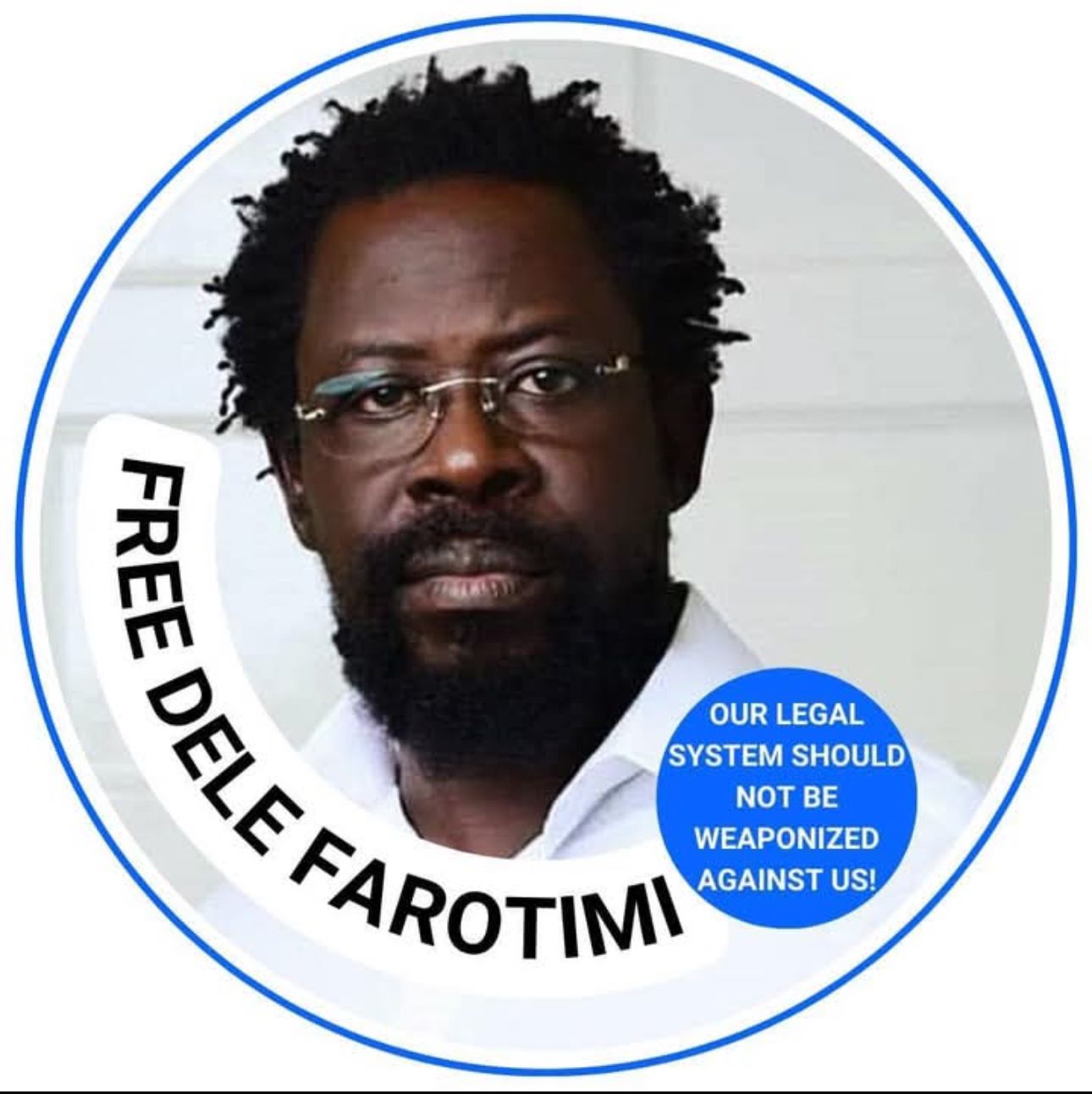 In the theater of Nigeria’s criminal justice system, the ongoing detention of Dele Farotimi stands as a glaring indictment of a legal framework caught in the snares of its contradictions. A vocal human rights activist, lawyer, and critic of systemic corruption, Farotimi now finds himself ensnared in the very system he has long sought to reform. His continued incarceration in Ekiti prison, despite the ongoing trial and an adjournment to January 29th, 2025, raises questions that transcend his individual plight and strike at the heart of Nigeria’s commitment to the rule of law.
In the theater of Nigeria’s criminal justice system, the ongoing detention of Dele Farotimi stands as a glaring indictment of a legal framework caught in the snares of its contradictions. A vocal human rights activist, lawyer, and critic of systemic corruption, Farotimi now finds himself ensnared in the very system he has long sought to reform. His continued incarceration in Ekiti prison, despite the ongoing trial and an adjournment to January 29th, 2025, raises questions that transcend his individual plight and strike at the heart of Nigeria’s commitment to the rule of law.
Farotimi’s detention emanates from charges alleging defamation and corruption claims he has made against high-ranking members of Nigeria’s judiciary and political elite. His accusations, while controversial, point to the endemic rot that has compromised the integrity of the nation’s justice system a system where justice is often auctioned to the highest bidder and where the powerful weaponize the law to silence dissent. Yet, instead of allowing Farotimi to substantiate his claims in court, the state has chosen the path of prolonged detention, a tactic that reeks of intimidation and impunity.
The principle of bail exists not merely as a procedural nicety but as a safeguard for liberty, ensuring that accused individuals can prepare their defense while the judicial process unfolds. To deny Farotimi bail under the guise of flight risk or public safety is to undermine the presumption of innocence a cornerstone of any democratic legal system. Farotimi is neither a fugitive nor a threat to society; he is a citizen exercising his constitutional right to free speech, albeit in a manner uncomfortable for those in power. The refusal to grant him bail appears less a legal necessity and more a punitive measure to stifle his voice.
 The adjournment of the case to January 29th, 2025, only compounds the injustice. The delays, ostensibly procedural, reflect a judiciary burdened by inefficiency and political interference. Adjournments should not become tools of oppression; they should serve the interests of justice by allowing adequate preparation and evidence review. Farotimi’s detention during this prolonged waiting period is not just legally questionable but morally indefensible. His health, reportedly deteriorating, underscores the urgent need for a medical examination to ensure his well-being a right guaranteed even to those accused of crimes.
The adjournment of the case to January 29th, 2025, only compounds the injustice. The delays, ostensibly procedural, reflect a judiciary burdened by inefficiency and political interference. Adjournments should not become tools of oppression; they should serve the interests of justice by allowing adequate preparation and evidence review. Farotimi’s detention during this prolonged waiting period is not just legally questionable but morally indefensible. His health, reportedly deteriorating, underscores the urgent need for a medical examination to ensure his well-being a right guaranteed even to those accused of crimes.
Adding another layer to this unfolding drama is the strategic visit by Peter Obi, the former governor and presidential hopeful, to both Afe Babalola, a legal luminary, and Dele Farotimi in prison. Obi’s move has been interpreted by some as a masterstroke of political alignment, signaling solidarity with advocates of judicial reform while subtly challenging the status quo. Whether this visit serves as a genuine act of support or a calculated political maneuver, it underscores the symbolic weight Farotimi’s case carries in the broader struggle for Nigeria’s legal and political redemption.
The question remains: why is Farotimi detained when the case against him is still ongoing? Is he a flight risk? The answer, based on his public persona and history of activism, is a resounding no. Farotimi has always faced his accusers with courage, and there is no evidence to suggest he would evade justice. His detention, therefore, appears not as a measure of necessity but as an act of deterrence a warning to other critics of the judiciary and the political establishment.
But Nigeria’s justice system must rise above the pettiness of vendettas and the shadows of impunity. The rule of law is not a weapon for the powerful; it is a shield for the weak, the accused, and the marginalized. To detain Farotimi without bail, especially when the charges against him hinge on allegations of speech and criticism, is to erode the foundational freedoms upon which the nation is built.
As the New Year approaches, the call for Farotimi’s release grows louder, not just as a legal imperative but as a moral necessity. He deserves the opportunity to spend the holidays with his family, to prepare his defense, and to regain his health. The court must allow the case to proceed without the shadow of prolonged detention hanging over it, ensuring that justice is served not just in verdict but in process.
Farotimi’s case is not merely about one man’s liberty; it is a litmus test for the soul of Nigeria’s judiciary. Will it choose to uphold the ideals of fairness and due process, or will it capitulate to the pressures of power and politics? The world watches, and history will judge.
Let Dele Farotimi walk free, not because he is above the law, but because he has a right to the law’s protections. Let the judiciary take its course, not as an instrument of oppression, but as a beacon of justice. And let Nigeria, in this critical moment, affirm its commitment to the rule of law a commitment that is the true measure of its sovereignty and its soul.
By Jide Adesina
Editor-in-Chief
December, 2024
All rights reserved

